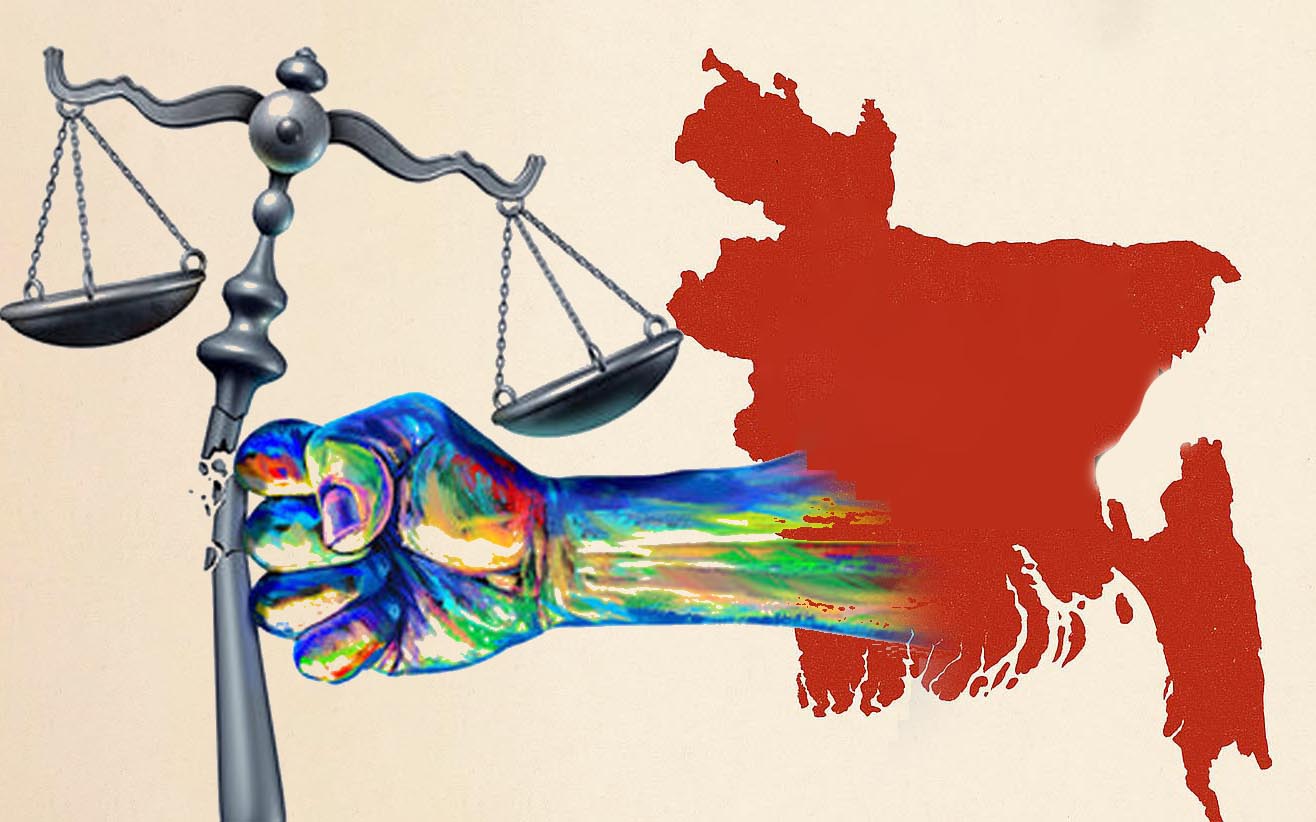Once a state declares itself to be a "wild country," it may act as it wishes. However, if it claims to be part of the civilized world and a member of the United Nations, it must abide by the UN Charter and the Constitution of Bangladesh.
Any amendment or formation of laws without due parliamentary process is a clear violation of both the Constitution and the UN Charter. No judiciary has the authority to initiate a trial based on an illegal or unconstitutional amendment. Doing so is a blatant breach of the Constitution and a betrayal of the oath taken by public officials.
According to the UN definition, genocide refers to the intentional act of destroying, in whole or in part, a national, ethnic, racial, or religious group—whether through killing, bodily harm, or systematic targeting aimed at their annihilation.
The power to issue ordinances under Article 93 is not a substitute for parliamentary lawmaking. It is intended solely for urgent and immediate needs, and not for politically sensitive or sweeping legislative changes—especially by an unelected or interim government.
Based on this principle, the International Crimes (Tribunals) Act, 1973 was enacted to prosecute the war criminals of 1971. During that time, more than three million people were killed, and approximately two hundred thousand women were raped by the Pakistani army and their local collaborators.
Today, however, the present government seems intent on misusing the ICT Act of 1973. Originally enacted to prosecute the atrocities of 1971, it is now being expanded beyond its legal scope. The government is attempting to invoke this Act in response to the officially declared figure of 600 deaths during recent political demonstrations—though the actual number is likely much lower and unrelated to the intent of the original Act.
If this misuse sets a precedent, then similar incidents of political killings under previous governments—including those during the regimes of Ershad, Ziaur Rahman, and Begum Khaleda Zia—should also be tried under the ICT. Selective justice erodes the integrity and original purpose of the ICT Act, which was meant specifically to address the crimes of the Liberation War.
Furthermore, forming the International Crimes Tribunal based on an ordinance is ultra vires (beyond legal authority) and unconstitutional. The language, intent, and constitutional framework of the Act limit its application to crimes committed during the 1971 war. Using it for unrelated modern political cases undermines the spirit of the law and risks turning it into a tool of political retribution.
At this critical juncture, the Bangladesh Army, police, civil administration, civil society, and patriotic political parties must step forward to protect the nation. If they fail to act, Bangladesh may descend into chaos and irreversible decline. Given the historical role the Bangladesh Army has played in past national transitions, the people now look to them again, hoping for leadership and responsibility during this time of crisis.
